In a cozy house on Chua Lang Street, Mr. Bui Gia Tue's wife, Mrs. Bach Thi Hoang Oanh, warmly and enthusiastically welcomed us with gifts from Hanoi in the fall, such as green bean cakes, sticky rice, bananas, etc. She said that every fall, Mr. Tue is filled with old emotions. Having gone through the pain and loss of war, witnessing so many comrades fall, and having his body covered with wounds, but being able to return to the capital - to return to his hometown healthy, to be able to devote himself to building the capital, is like a dream for the 93-year-old veteran.
Having spent his childhood on Hang Be Street, Mr. Bui Gia Tue (born in 1931) nurtured his love for his homeland and hatred for the enemy. On December 19, 1946, when President Ho Chi Minh issued the "Call for National Resistance", Mr. Tue asked to meet the neighborhood militia captain and asked to directly perform reconnaissance and liaison duties. Two years later, during a visit to his brother who was a doctor at the 308th Regiment (now the 308th Division), Mr. Tue asked to join the army.
Entering the decisive battle at Dien Bien Phu at the age of 23, Mr. Bui Gia Tue held the position of Platoon Leader, Weapons Assistant of Division 308, directly transferring ammunition supplies to the artillery of the Dien Bien Phu campaign. The date of establishment of Division 308 was August 28, 1949, which was also the day he was admitted to the Party.
Memories of Mr. Bui Gia Tue on the day of taking over the capital.
The Winter-Spring Victory of 1953-1954, culminating in the historic Dien Bien Phu Campaign, gloriously ended our people's resistance war against the French colonialists. In this strategic offensive, the 308th Division made a worthy contribution to the great victory of the nation. The Division fought many battles, including dozens of major battles, destroyed and captured more than 4,000 enemies (not counting the number of enemies captured on May 7), and seized a lot of guns, ammunition, military uniforms and equipment.
Officers of Division 308 explain policies to soldiers who had just surrendered in Ban Keo during the Dien Bien Phu Campaign in 1954. Photo: VNA
The Division successfully completed all assigned tasks: Liberating Lai Chau town; opening the campaign route; breaking the Nam Hu river defense line; participating in destroying Doc Lap hill; building a trench battle to surround the enemy in the west of Muong Thanh, attacking and capturing strongholds 106, 206, 311A, 311B, 301, participating in attacking hill A1 and the general attack to completely destroy the Dien Bien Phu stronghold complex.
On May 7, 1954, the Dien Bien Phu campaign was victorious. The soldiers of the 308th Division were happy and excited to witness the historic scene: General De Castries, the Command and nearly 120,000 French soldiers were taken prisoner. Mr. Tue and some comrades who knew French were assigned to guard the French prisoners after the Dien Bien Phu victory.
For the 308th Division, the feats it achieved in the Winter-Spring of 1953-1954 and the Dien Bien Phu Campaign were truly the most glorious pages in the history of the division. After the Dien Bien Phu Campaign, the 308th Division was sent downstream with other units. “From a place where we did not know whether we would live or die, only knowing how to fight, now being ordered to return with the Division to take over Hanoi, I am extremely happy,” said Mr. Tue.
On September 19, 1954, at Gieng Temple, a relic in the Hung Temple historical and cultural relic complex, Uncle Ho had a talk with officers and soldiers of the 308th Division (the Vanguard Army Division) on their way to take over the capital. Photo: VNA
On the way to take over the Capital in September 1954, a number of cadres of the Vanguard Army - Division 308 were able to enter Hung Temple and meet Uncle Ho. Meeting Uncle Ho, everyone was happy because he praised them for their bravery and quickly established a brilliant feat that "resounded throughout the five continents and shook the earth". Uncle also advised: "The Hung Kings had the merit of building the country, you and I must work together to protect the country".
A very important task that Uncle Ho entrusted to the 308th Division was to return to Hanoi to take over the capital. “Uncle Ho used the word “return” because he knew that our Division had left Hanoi. Before leaving the capital to fight against the French, some self-defense and suicide soldiers wrote a short slogan on the wall in Hang Buom street: “We promise the people that one day we will return to Hanoi.” Uncle Ho told us that the task of taking over the capital had a very important political significance, so you need to be careful and thoughtful,” Mr. Tue recounted.
The soldiers chosen to represent the 308th Division had arrived in Hanoi before October 10th, waiting in Ha Dong. Everyone stayed up all night, anxiously awaiting the important moment.
On the day of taking over the capital, Mr. Bui Gia Tue sat in the third car, following two cars of Chairman of the Military Management Committee Vuong Thua Vu and Vice Chairman of the Hanoi Military Management Committee Tran Duy Hung; going from Ha Dong, to Cua Nam, through Hang Dau, Hang Ngang, Hang Dao, Bo Ho...
The convoy carrying soldiers of Division 308 passed through Hang Dao Street on the morning of October 10, 1954, amidst the joyful welcome of tens of thousands of people. Photo: VNA
Mr. Tue called the journey into the capital “the most wonderful march of his life”. Holding the precious photo carefully laminated with clear captions, he showed us his position on the front right of the convoy that year. As a son of Hanoi, many years away from home, fighting on the hottest fronts, not knowing whether he would live or die, so when he reached the beloved capital, witnessing the happy day of Hanoi’s victory, he sang in his heart, mixed with emotion and pride.
“Tens of thousands of people stood on both sides of the road to welcome us, and the Trung Vuong female students rushed out to hug the soldiers, making us even more choked up… I saw my relatives and friends waving from afar, and I could only clasp my hands in greeting and thank them. That was a truly happy moment that I will never forget,” he said, then raised his voice and said: “Before, when we left, we were a suicide squad that secretly withdrew from the capital, but now we have returned publicly victorious from the Dien Bien Phu battle, and I am very proud.”
After the day of taking over the capital, the unit was assigned the task of protecting the Yen Phu Water Plant for more than a month. Mr. Tue said that it was an important location, and the superiors required the unit to strictly guard it to protect the capital's water source. Mr. Tue recalled that at that time, the French colonialists left, plotting to place white sacks containing unknown substances on the well's mouth. Realizing the risk of poisoning, we reported to the commander and asked the enemy to move immediately. That prevented the enemy from sabotaging Hanoi after the day of taking over.
Five days after taking over the capital, the unit was allowed to go out in the neighborhood. He and the Division's logistics chief went through Hang Be Street. In the middle of the neighborhood, at house number 19 (Mr. Tue's house), some relatives rushed out to invite them in, but he waved his hand and reported to the logistics chief: "My family has not returned from evacuation, these are just relatives, so please do not come in." He said that the strictness was because the authorities did not allow direct meetings with relatives and blood relatives after returning to take over. About 4 months later, his family moved from the evacuation area in Thanh Hoa to Hanoi, and he was able to see his mother and siblings again. He continued to go to school, while his mother and siblings made a living in a small rented house on Ma May Street.
“Uncle Ho asked: “What do you study for?”, “Yes, Uncle, we study to serve the people,” I replied. Uncle Ho continued to ask: “What does it mean to serve the people?”. I was confused, then regained my composure and answered Uncle Ho: “Yes, Uncle, serving the people means taking care of the people’s lives to improve in terms of food, housing, clothing, transportation, education…”, “That’s good. Sit down.” Uncle Ho’s words were very simple, but I will never forget them for the rest of my life,” Mr. Tue recalled.
The memories of meeting Uncle Ho have been imprinted in his heart throughout his life. After graduating from the University of Economics and Finance, Mr. Tue worked at the Military Industry Department (General Department of Defense Industry).
"Uncle Ho advised, anything that is beneficial to the people must be done well, and anything that is not beneficial must be avoided at all costs." For the past 40 years, Mr. Bui Gia Tue has absorbed this saying in his work activities and even in retirement.
During his years working in the military, Mr. Bui Gia Tue could not remember how many missions he had, how much ammunition and medicine he had to carry to serve the battlefield. Later, during the resistance war against the US, he and his comrades secretly supplied ammunition to unnumbered ships day and night to bring to the South.
Being careful with every detail shared, Mr. Tue only modestly told about the work he personally did. Sometimes, his partner asked him to tell his grandchildren more about the later period, but he dismissed it because he felt he did not have much of an impact in it.
He lost hearing in one ear while in Dien Bien, so for many years now, wherever he goes, he has always had his wife with him. During the conversation, his wife was both an interpreter and an assistant to Mr. Tue. She said that he brought back his war wounds from Dien Bien, including a war invalid certificate, but he did not receive the regime. He told her, if he did not receive it, his comrades in the countryside, who were in a more difficult situation than him, would have a little more to live on.
Retiring in 1991, he was still happy to continue doing his duty for the benefit of the people, as the head of the mediation team. After nearly 10 years of mediation work, he was awarded the title “Good person – Good deed” by the Chairman of Hanoi City for his contributions to mediation work at the grassroots level.
With his contributions and dedication to the revolution, Mr. Tue was honored to receive many noble medals and awards from the State and the army. On September 2, Mr. Bui Gia Tue was given another happiness when he was awarded the 75-year Party membership badge when he turned 93 years old.
“That is very satisfying. Being healthy at this age, witnessing so many changes in the country and Hanoi, I feel I am luckier than many of my comrades. I only hope that my children and grandchildren, the younger generations, will continue the spirit of dedication to build a rich and beautiful homeland,” Mr. Tue said as we said goodbye.


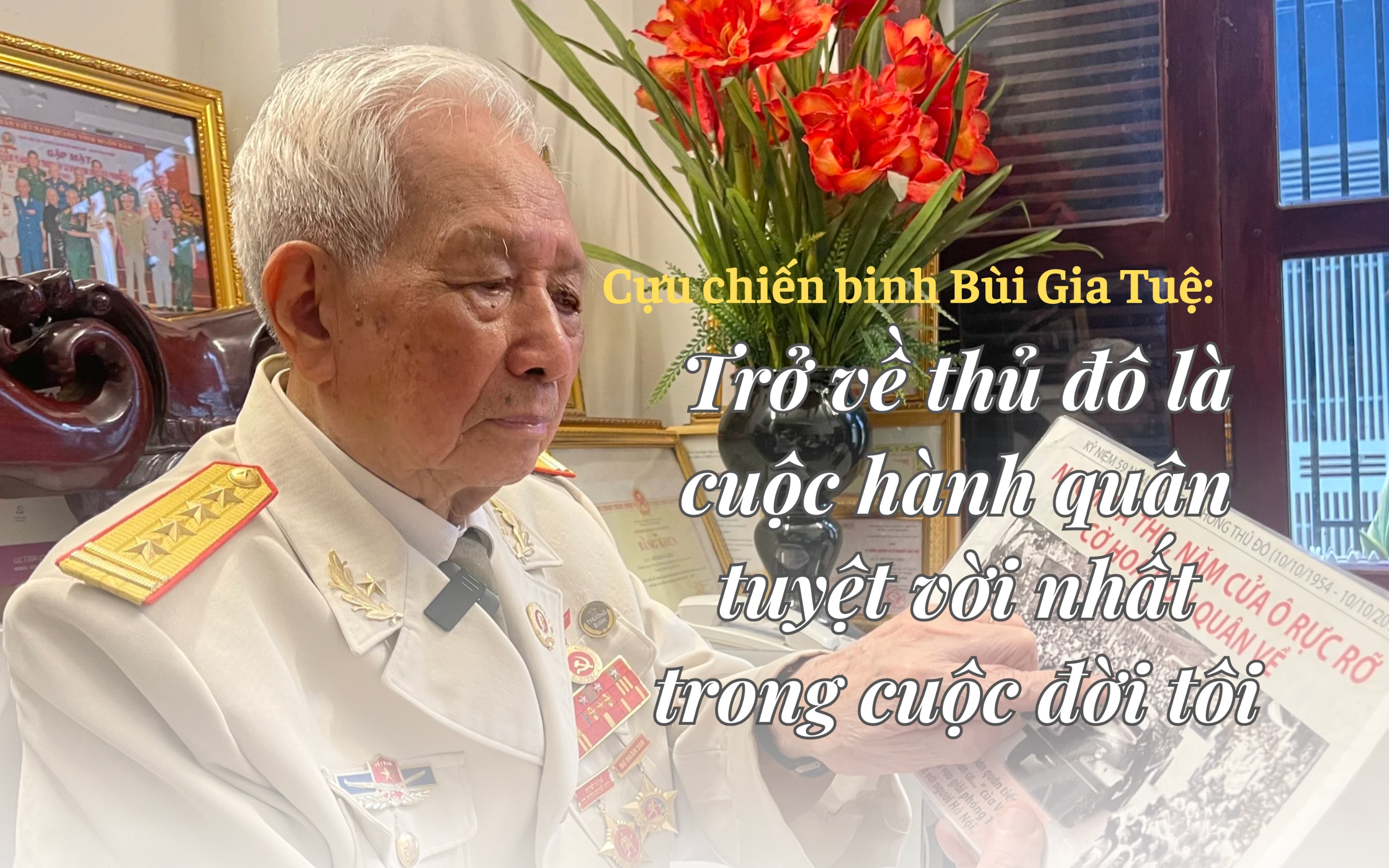
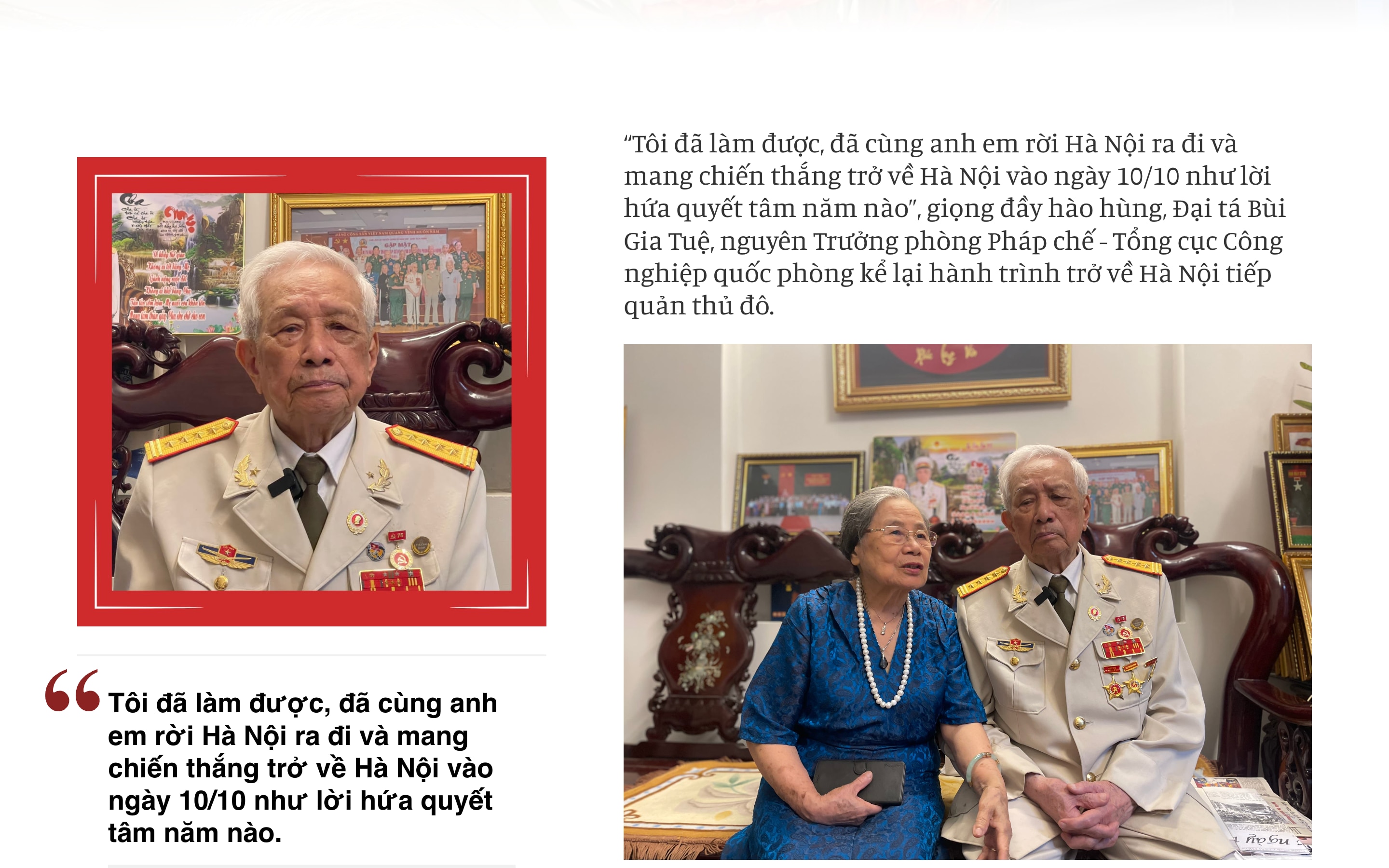
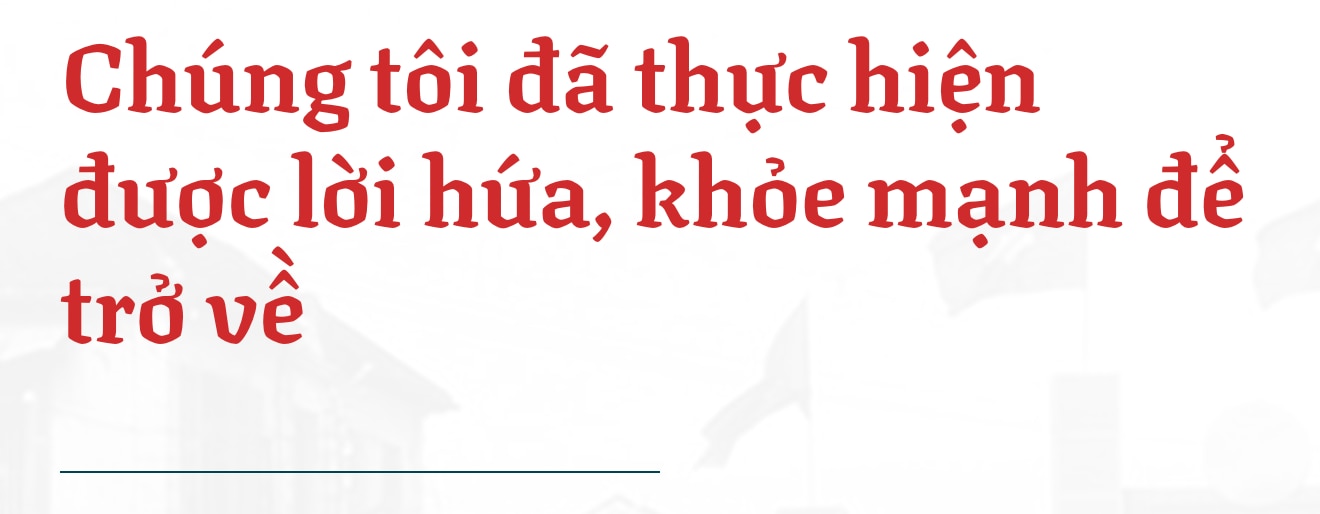
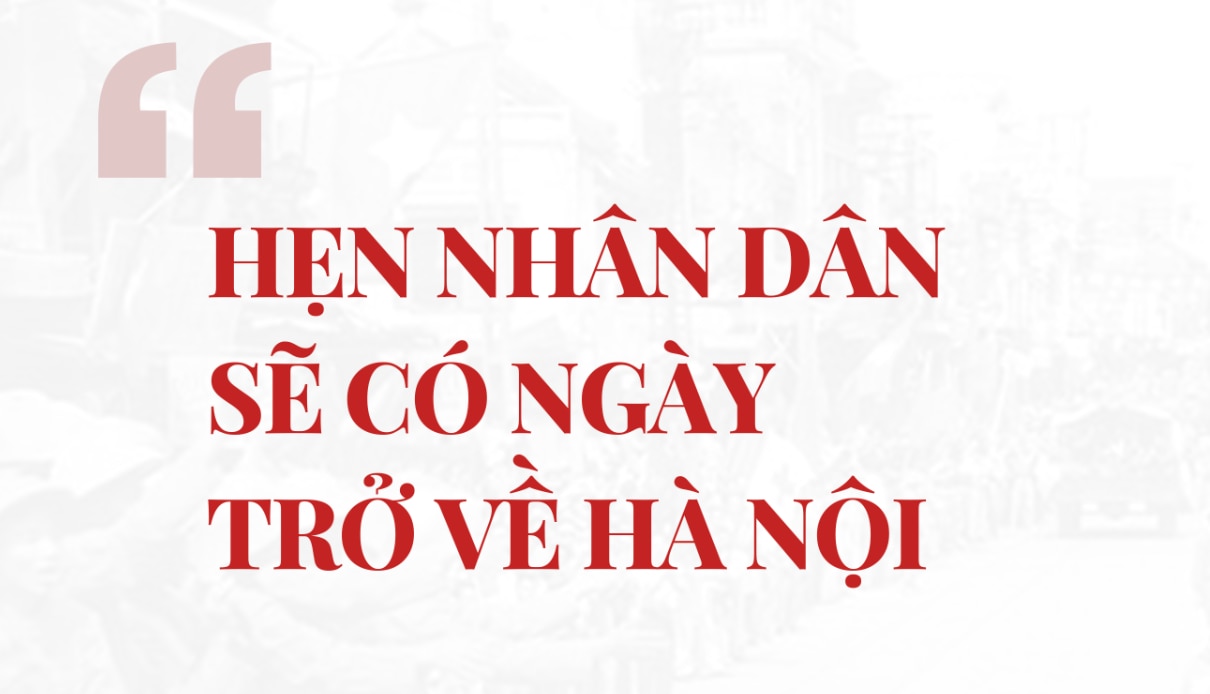
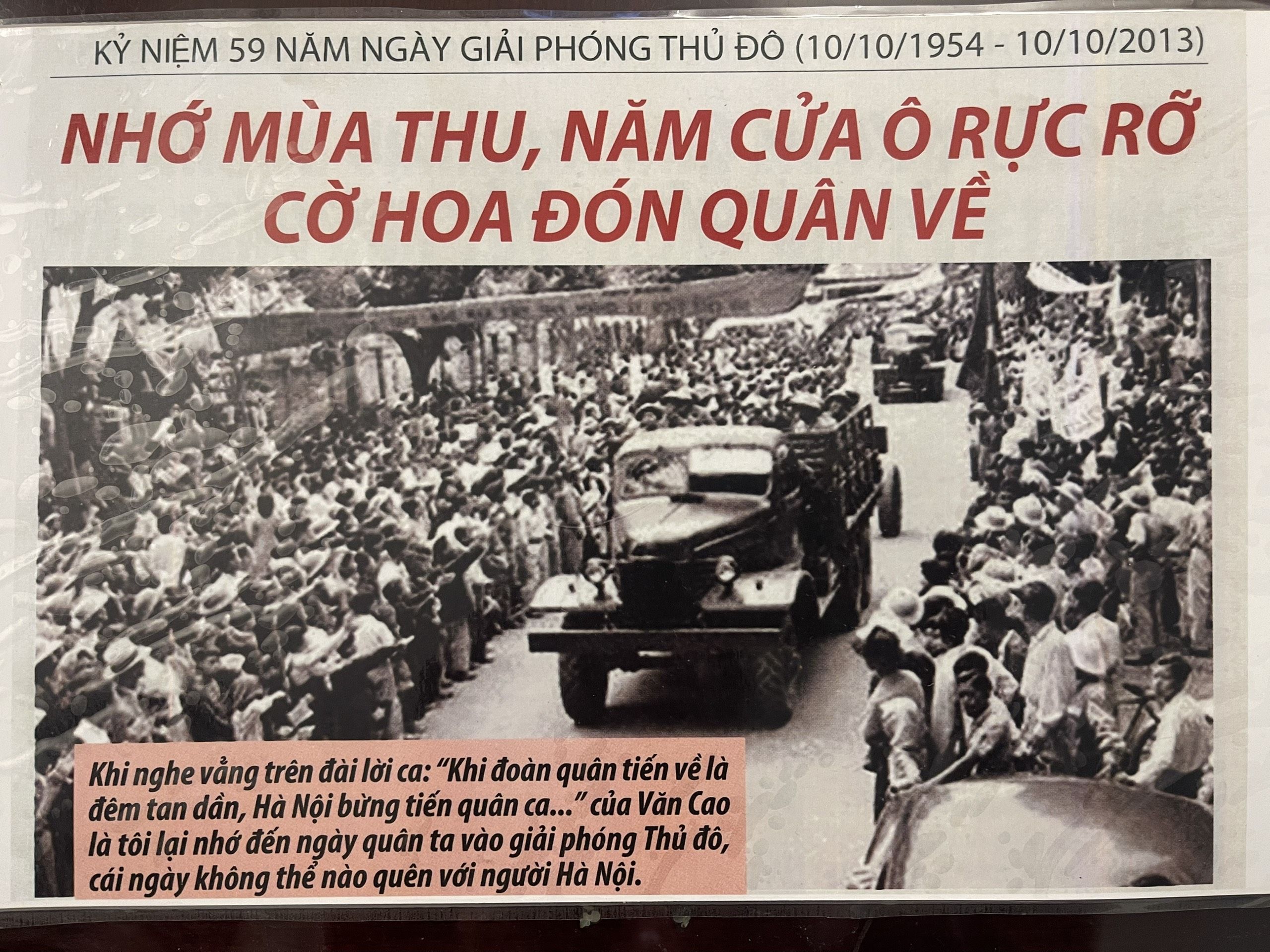
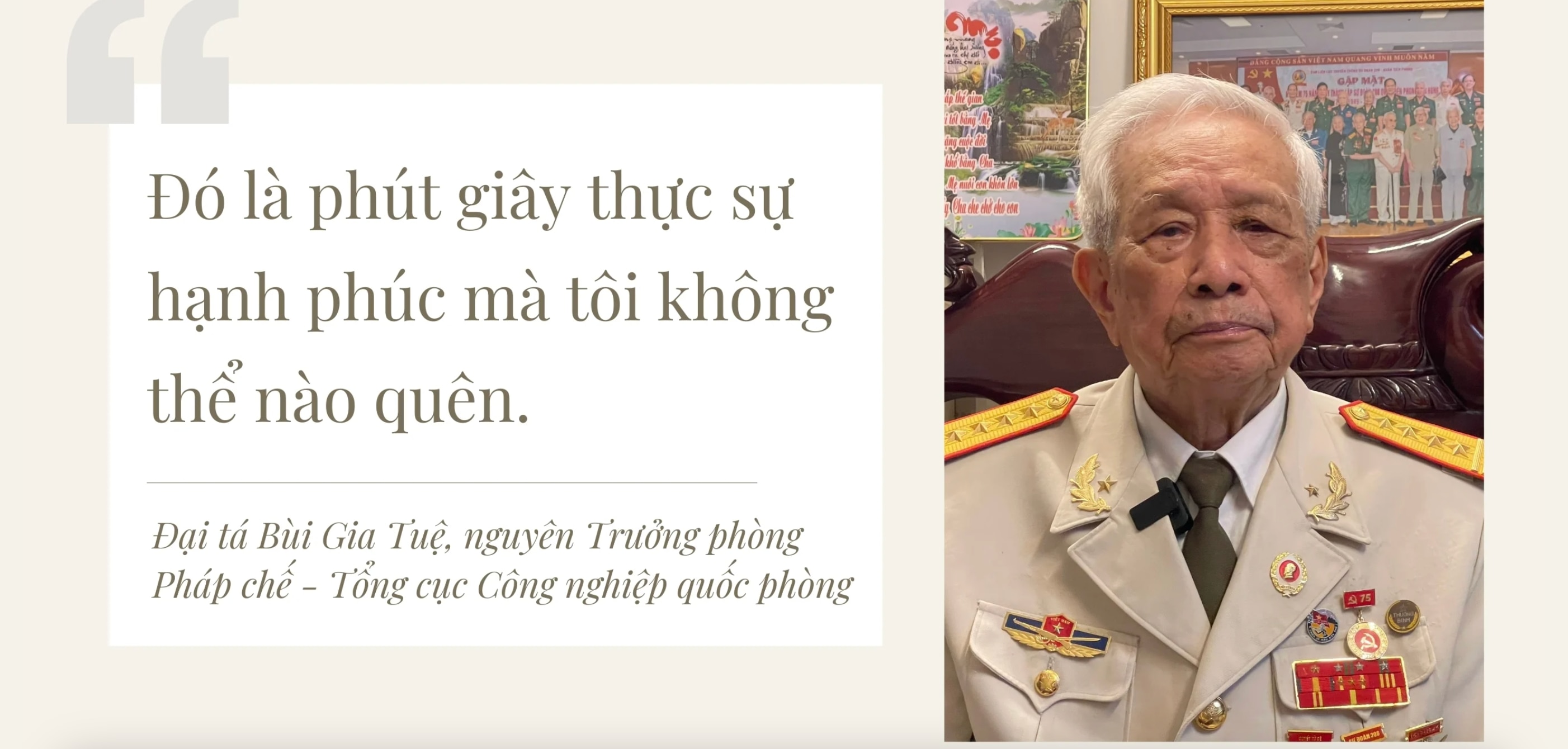
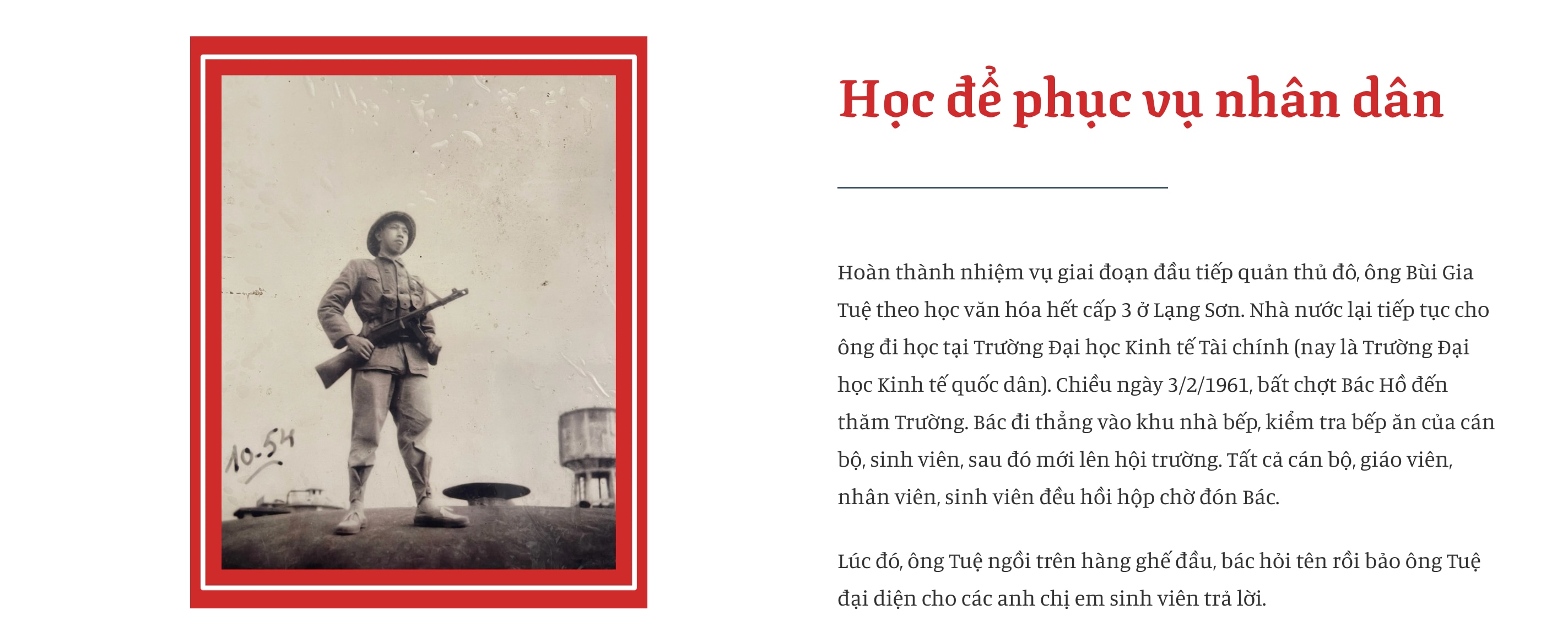
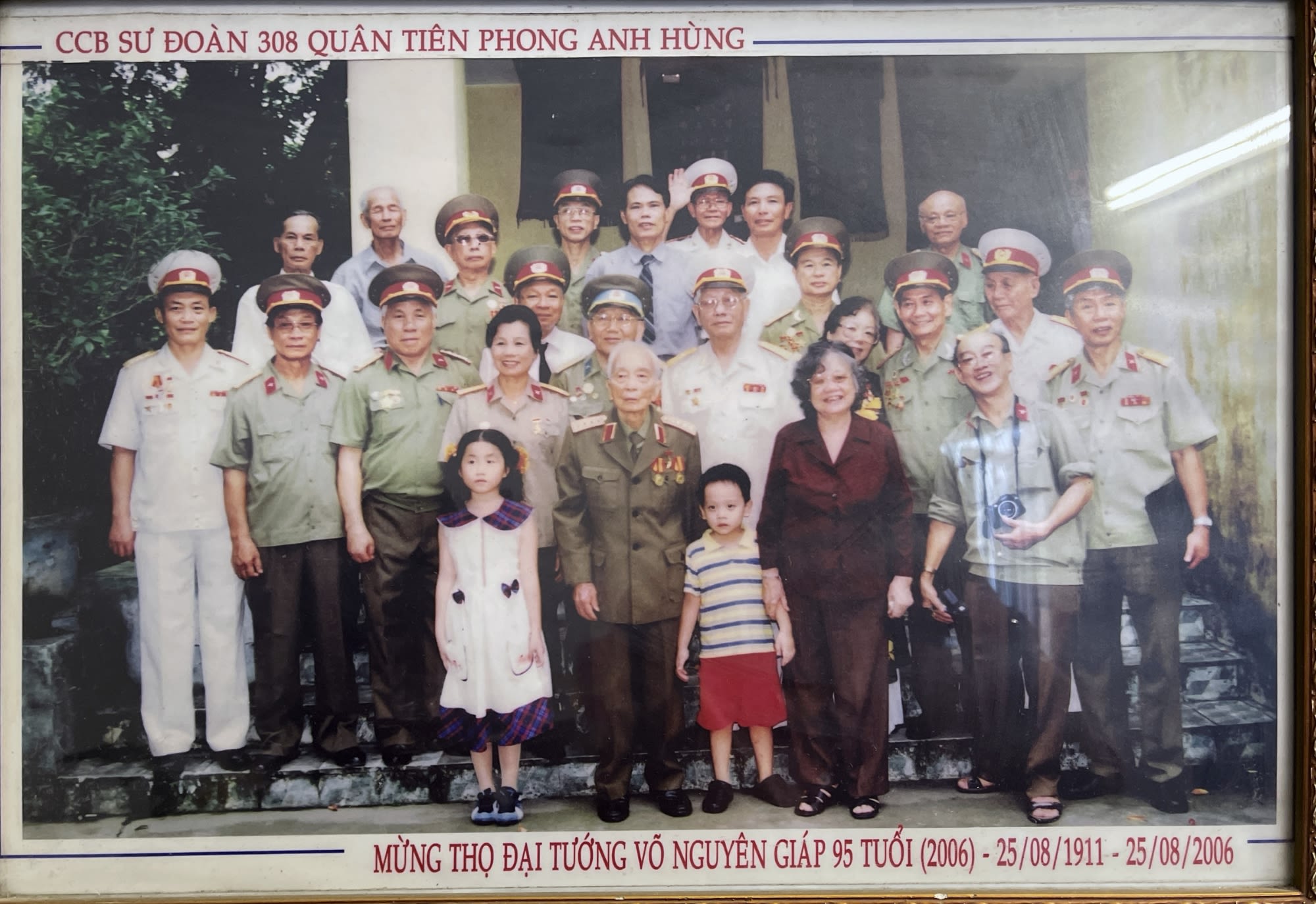
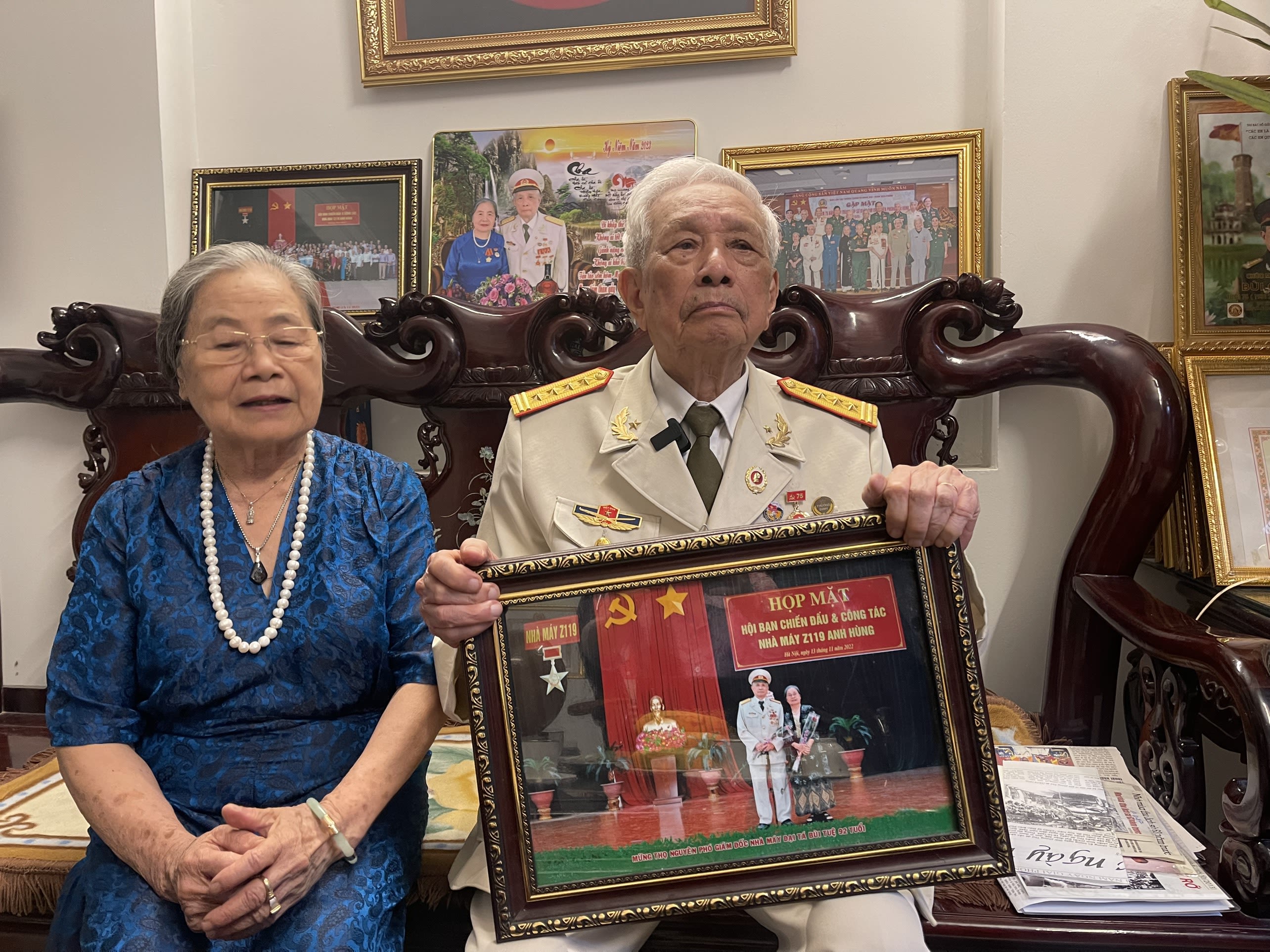
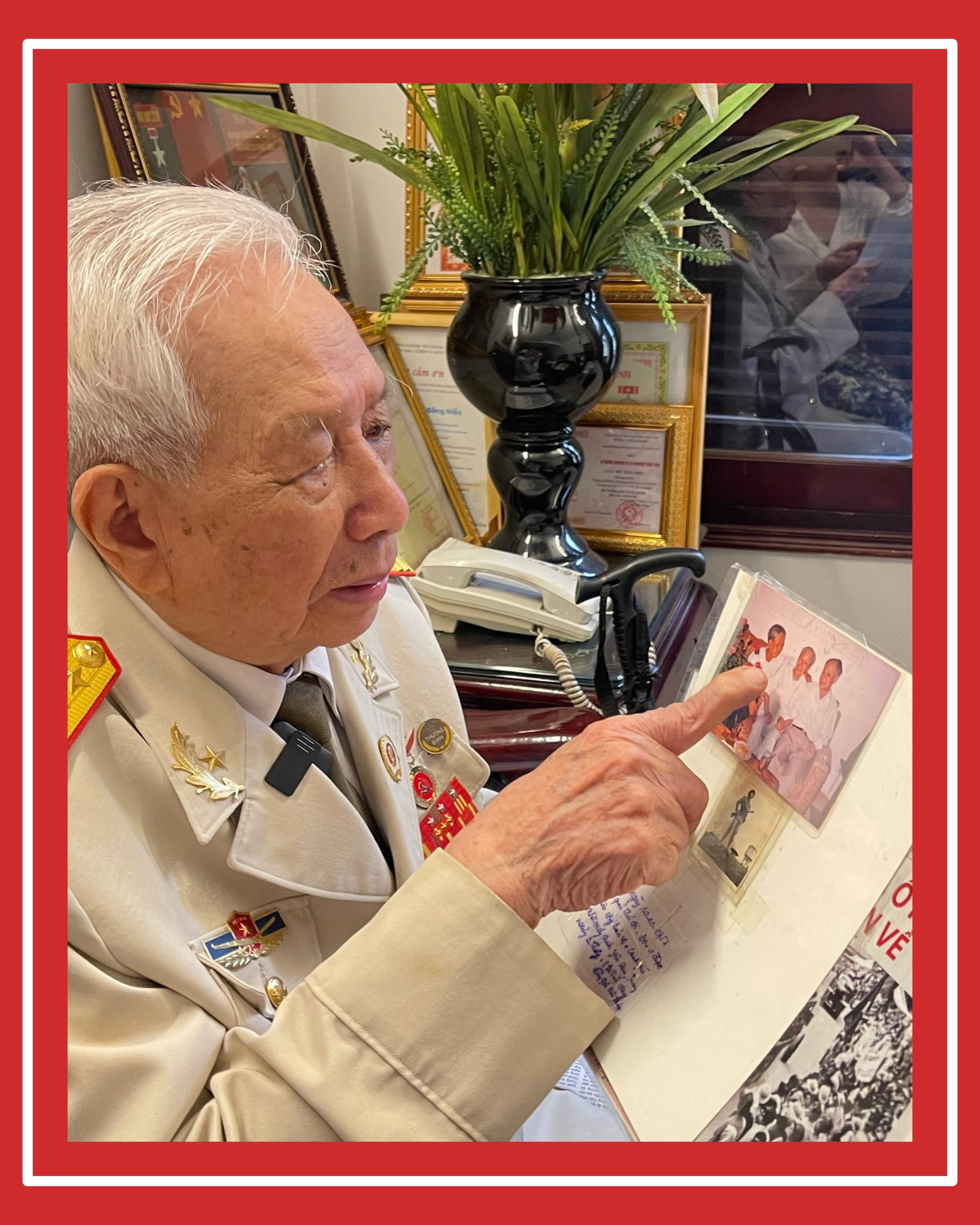
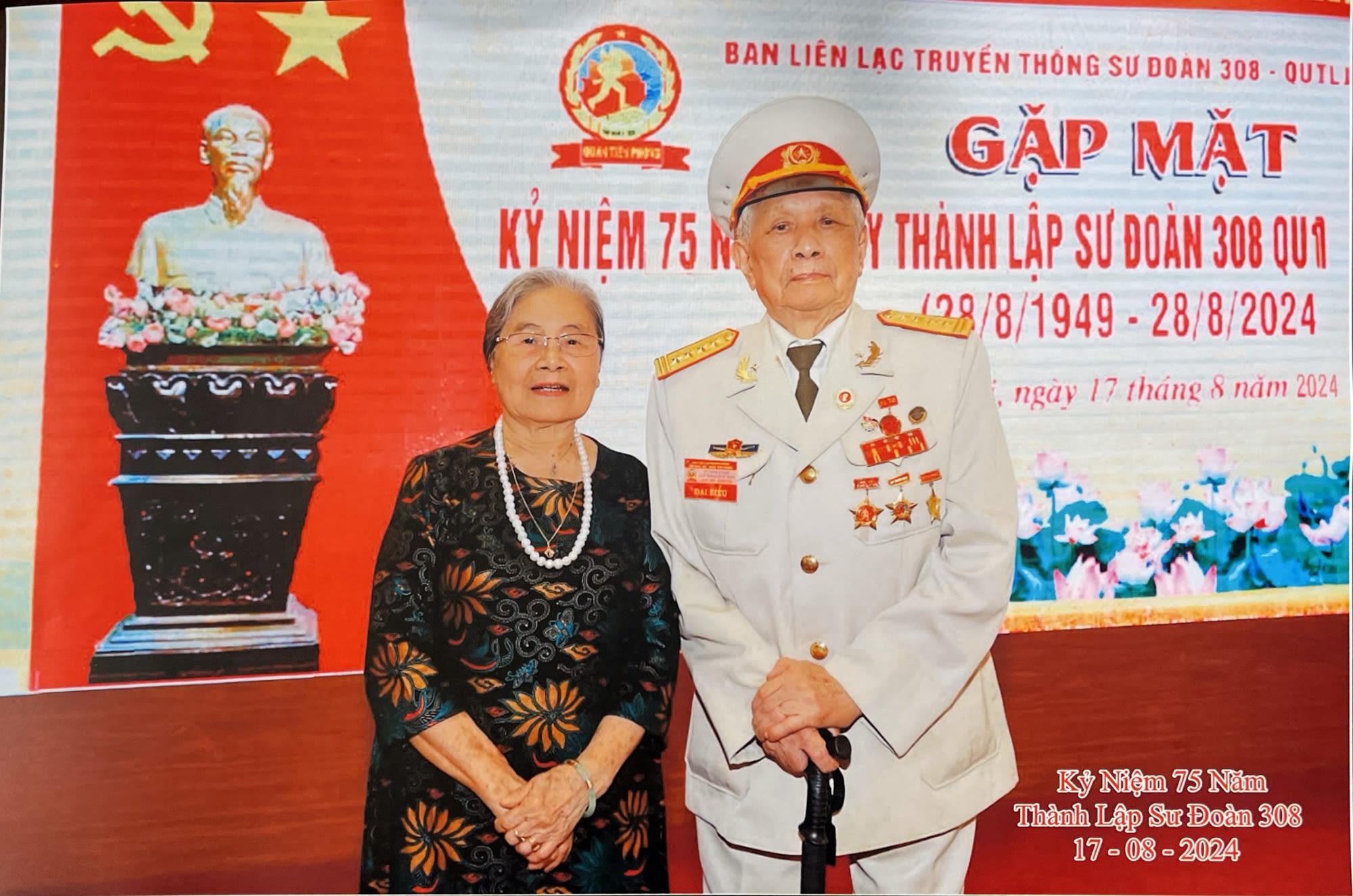
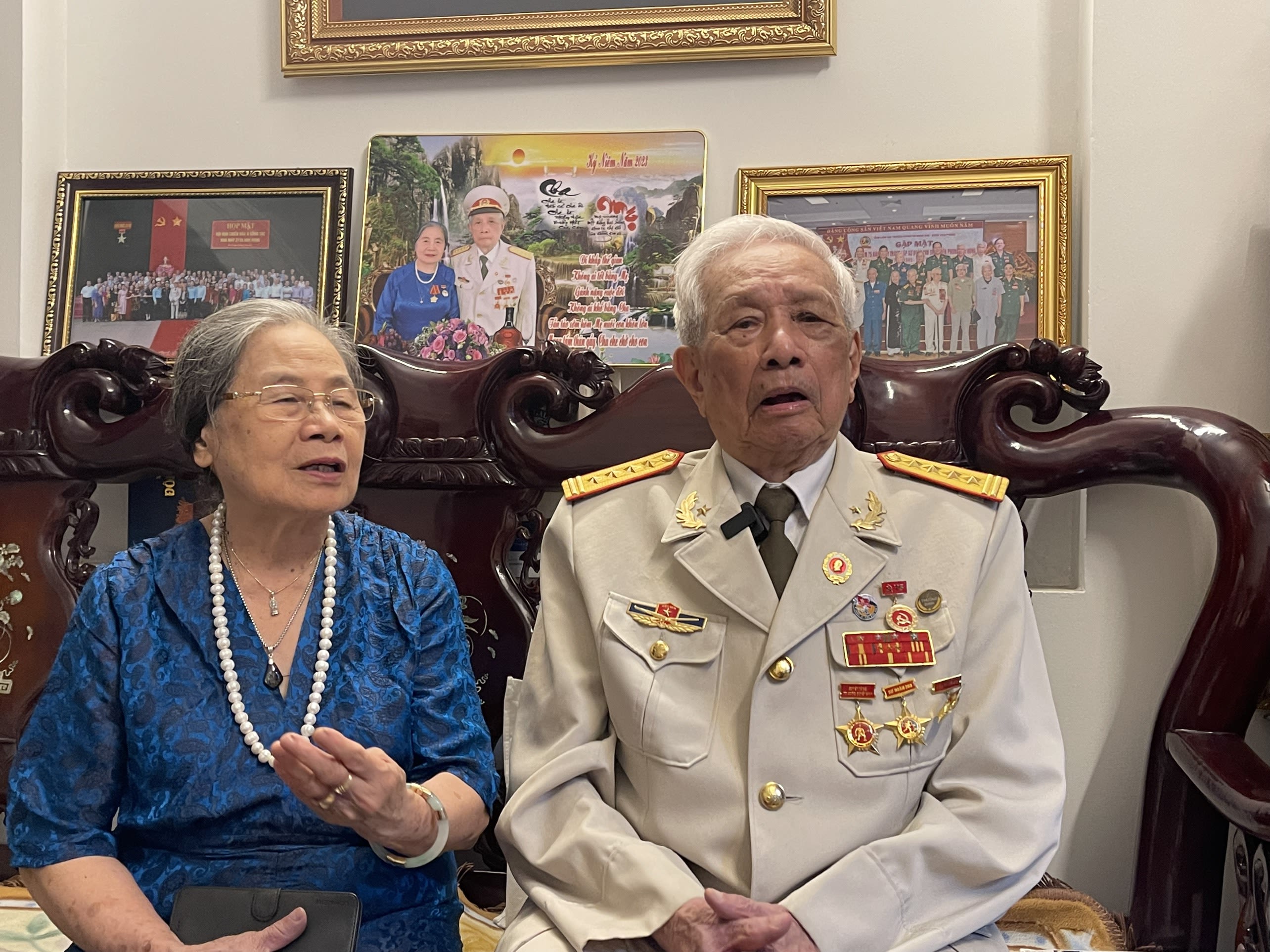



![[Photo] Unique art of painting Tuong masks](https://vphoto.vietnam.vn/thumb/1200x675/vietnam/resource/IMAGE/2025/11/14/1763094089301_ndo_br_1-jpg.webp)




![[Photo] Unique architecture of the deepest metro station in France](https://vphoto.vietnam.vn/thumb/1200x675/vietnam/resource/IMAGE/2025/11/14/1763107592365_ga-sau-nhat-nuoc-phap-duy-1-6403-jpg.webp)
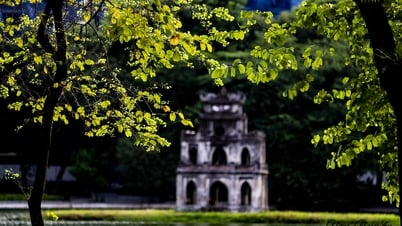

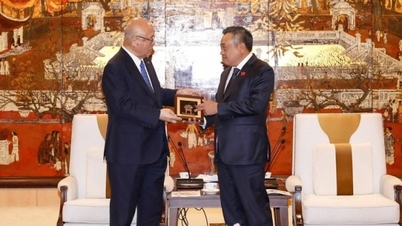







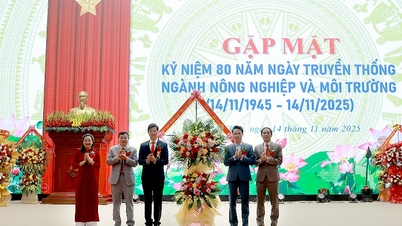

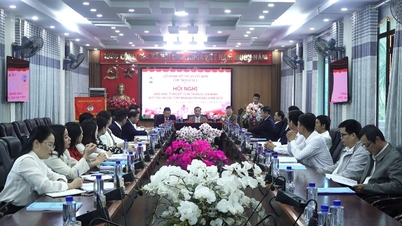
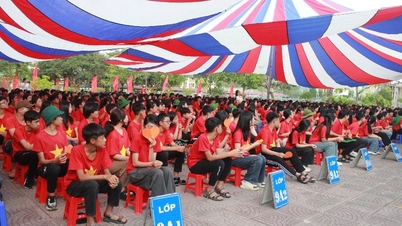
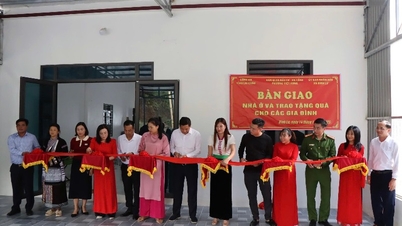

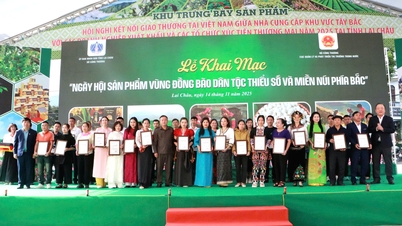




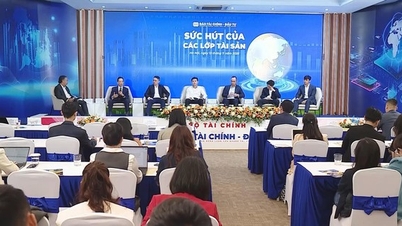
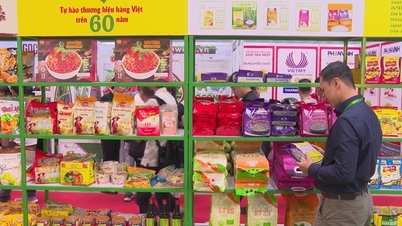
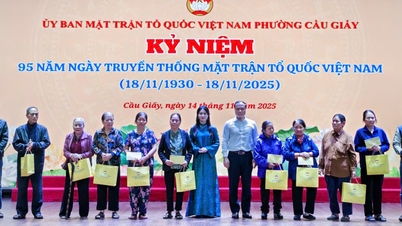
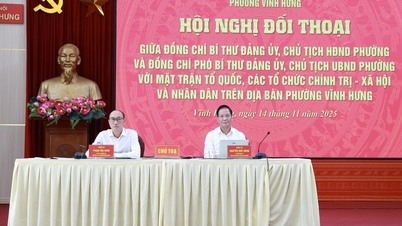
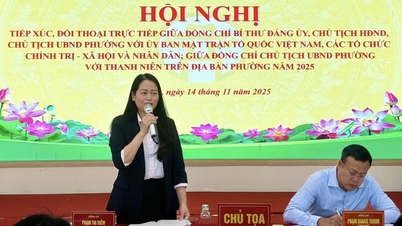
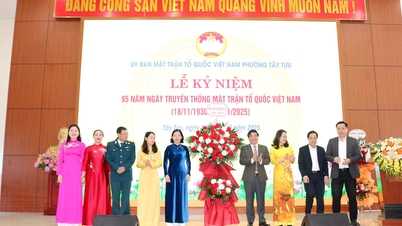

![[Photo] Special class in Tra Linh](https://vphoto.vietnam.vn/thumb/1200x675/vietnam/resource/IMAGE/2025/11/14/1763078485441_ndo_br_lop-hoc-7-jpg.webp)










































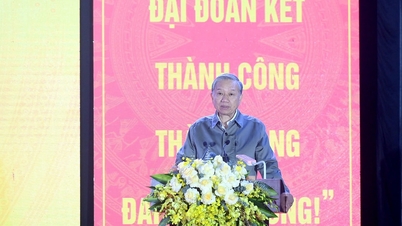



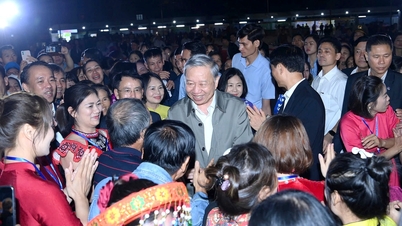
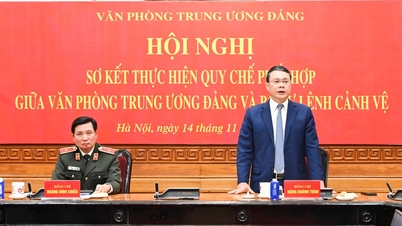




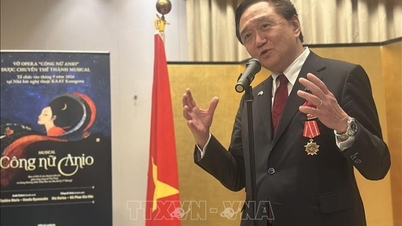

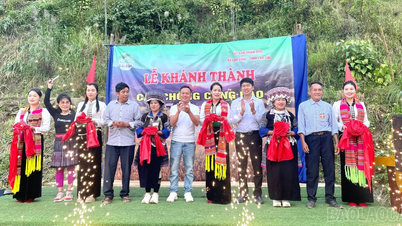

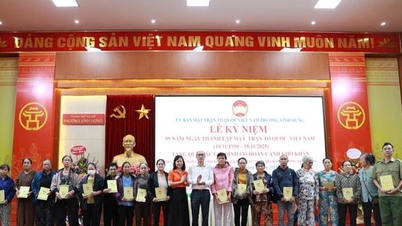












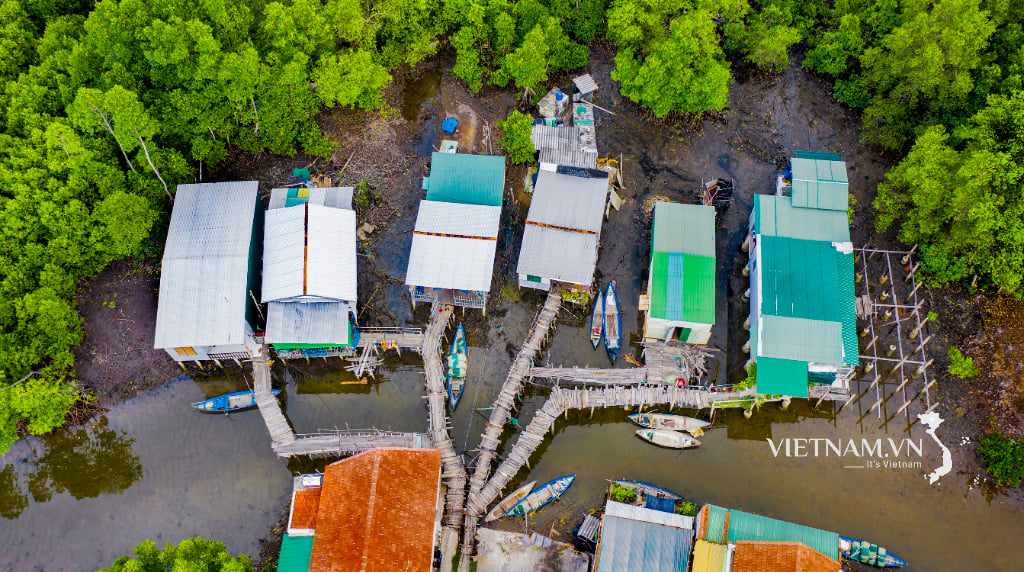
Comment (0)